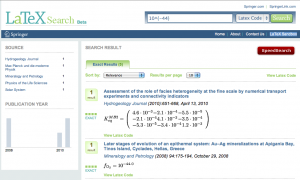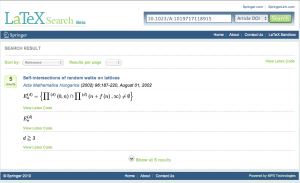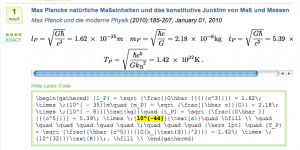I don’t usually go in for roundups. But the chatter about Wolfram|Alpha is so fun and so contradictory, I just had to collect it.
First, what is Wolfram|Alpha?
Let’s start with the tweets:
Working with WolframAlpha reminds me of playing Adventure, Zork and such- “I Wonder if phrasing it this way will work…”. Fun with NLP. – Geoffrey Bilder
wolframalpha thinks star trek is a movie, House (character) is unicode x2302, but is knows that the Boss is Bruce Springsteen – Eric Hellman
Onward to reviews. I’ll give you four types:
- “What can it do?”
Mashable’s 10 Easter Eggs and 10 More
- “Incredible potential”
James Hendler says:
…a useful tool for some fields, and mainly a play toy beyond that — at least for now.
But the potential is incredible. I really feel like it ushers in a new generation of Web applications and opens the door for getting people to realize that search is only the very beginning of what the Web is about.
Jon Udell is hoping “to be able to compute with facts in a more frictionless way.”
- “Let’s improve it”
Deepak Singh wants to enhance Wolfram|Alpha with structured data from other sources like Freebase and the Protein Data Bank.
Google, Wikipedia, Wolfram|Alpha, two well established, and one nascent, but together, the three make quite a triumvirate of information, complementing each other well. Add to that sources like Freebase and we continue to move towards a world where information and knowledge at different levels gets increasingly accessible and available. The hope is that as that happens, we can solve new problems, and add to that knowledge at a broader scale than we ever have.”
- “All that hype for this“?
Snark (what else?) from Ted Dziuba at The Register: Wolfram Alpha – a new kind of Fail
In a more serious vein, David Weinberger sees Wolfram|Alpha’s Achilles’ heel:
Curation is a source of its strength. It increases the reliability of the information, it enables the computations, and it lets the results pages present interesting and relevant information far beyond the simple factual answer to the question. The richness of those pages will be big factor in the site’s success.
Curation is also WA’s limitation.
…
WA’s big benefit is that it answers questions authoritatively. WA nails facts down. …It thus ends conversation. Google and Wikipedia aim at continuing and even provoking conversation.
Buzz started in March, with raves from Nova Spivack and Doug Lenat. Rudy Rucker soon followed.
 I also really go in for the favicon.ico. Equals sign, check. Homage to Mathematica, check. Ahem.
I also really go in for the favicon.ico. Equals sign, check. Homage to Mathematica, check. Ahem.
See also: Google Squared lauching soon according to TechCrunch’s demo and Search Engine Land’s post.


